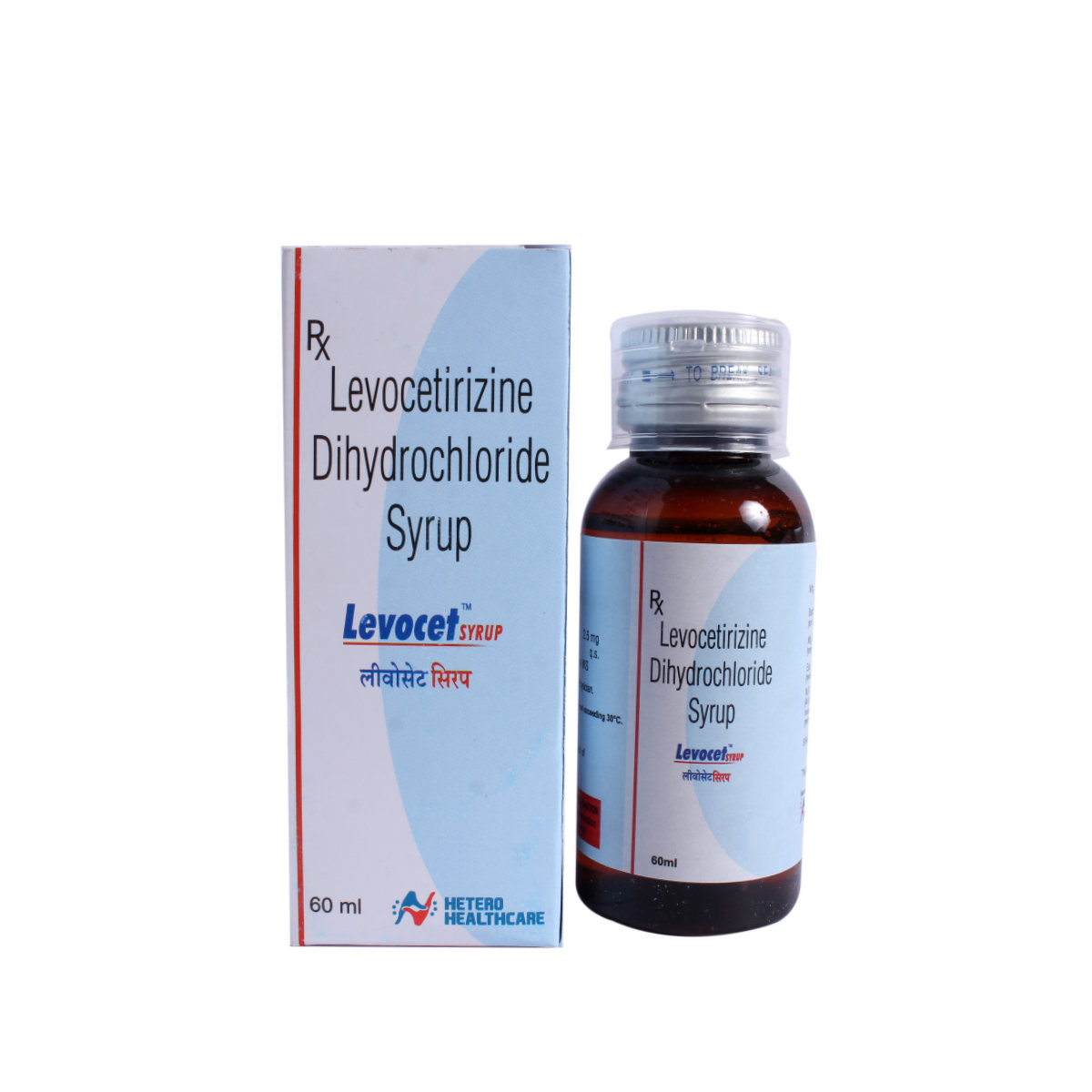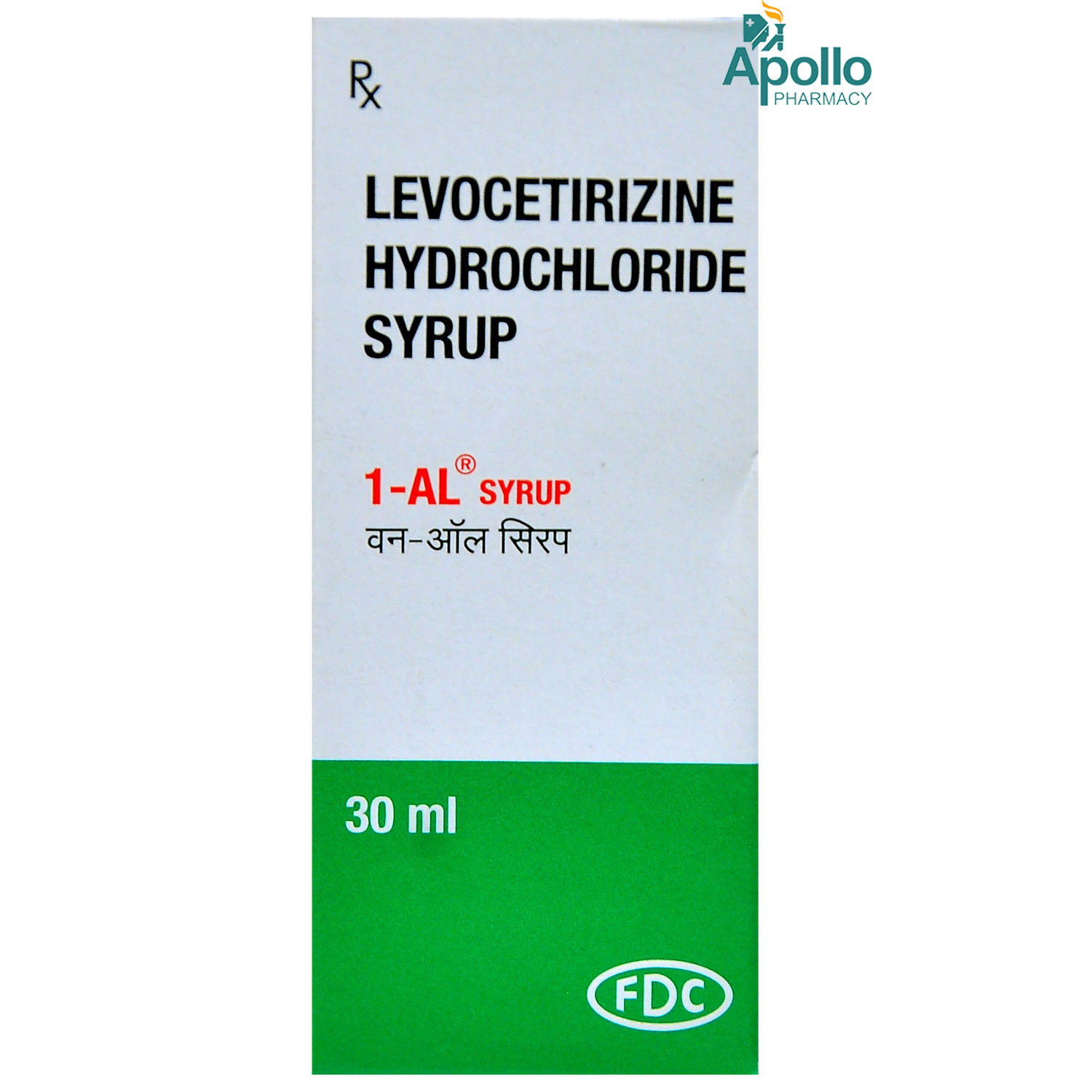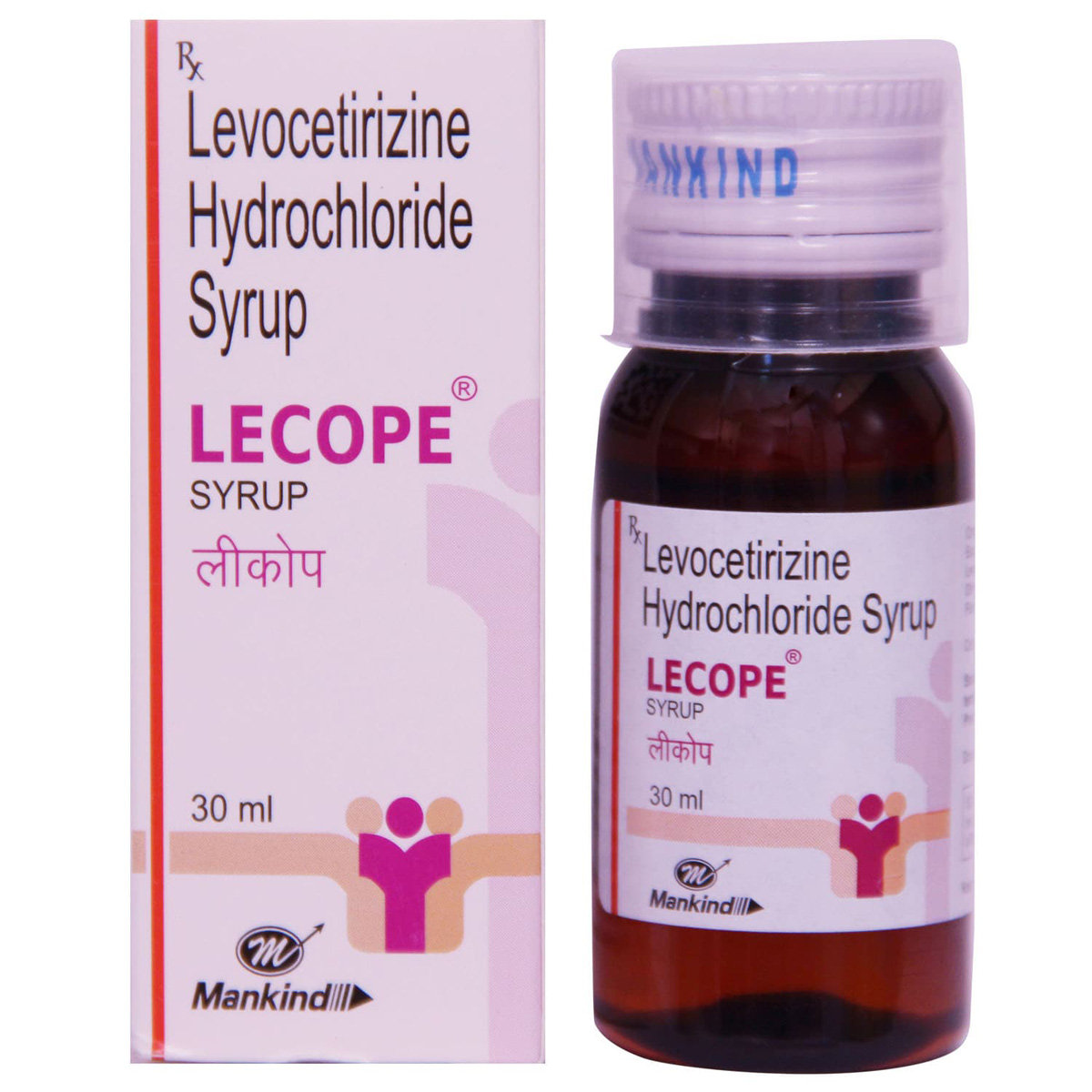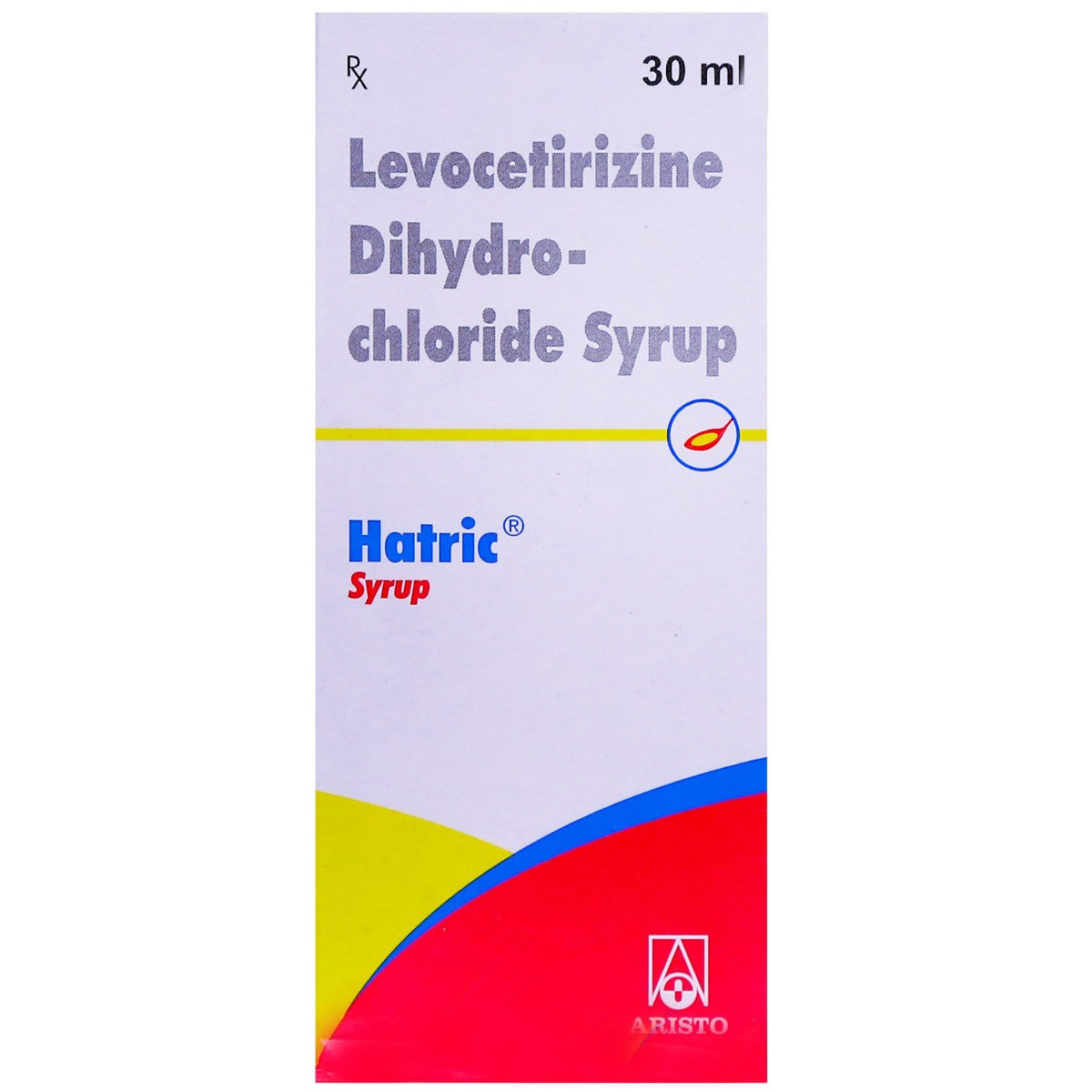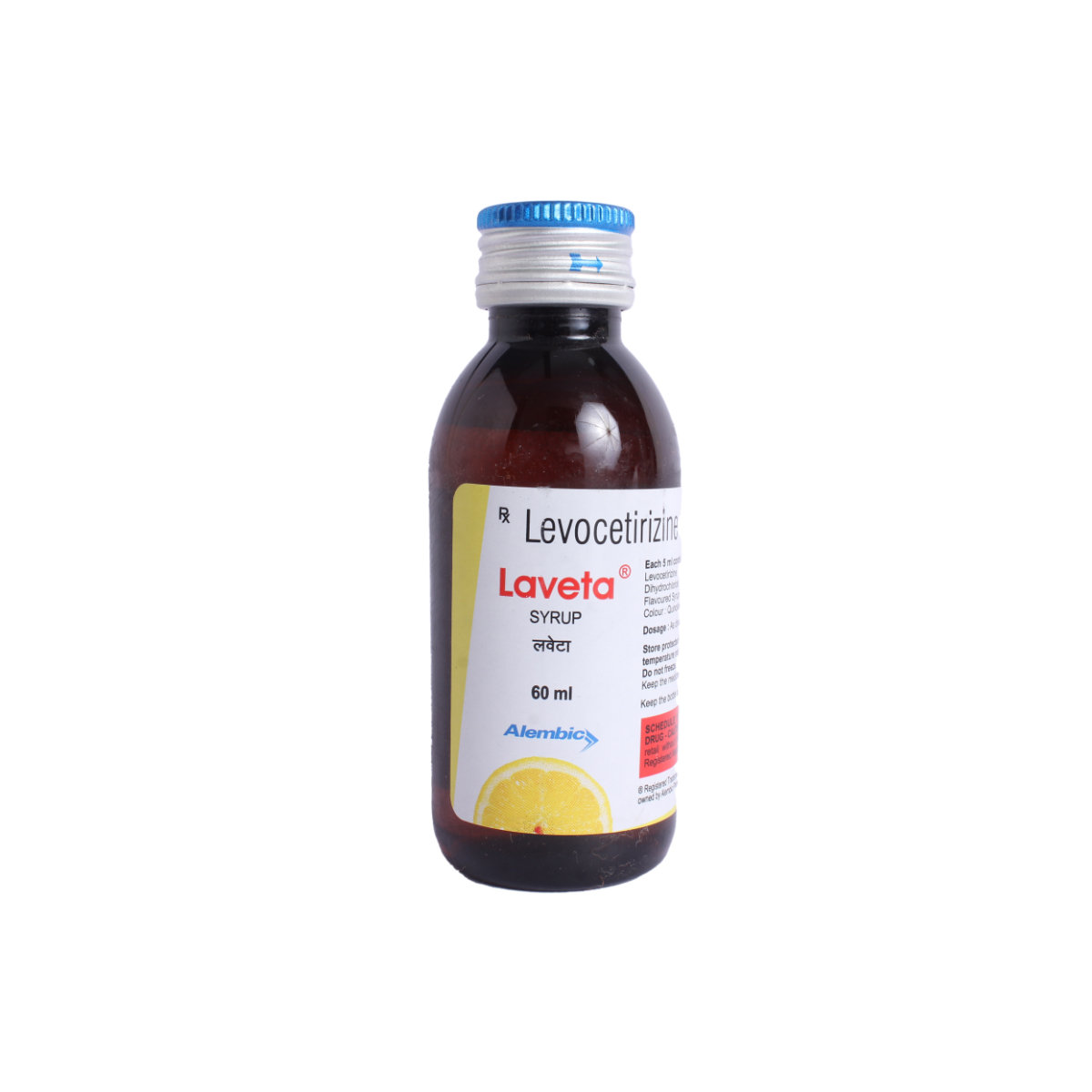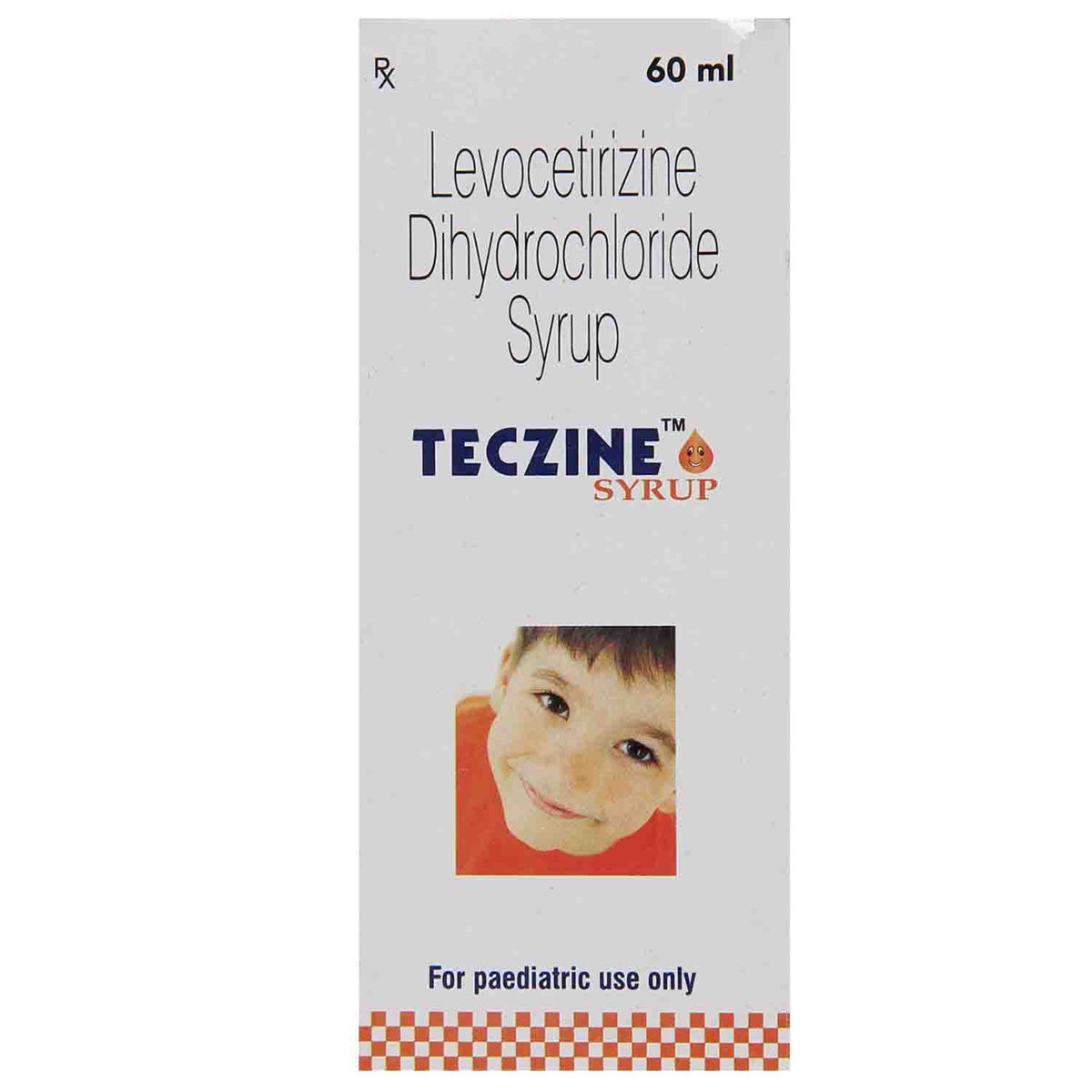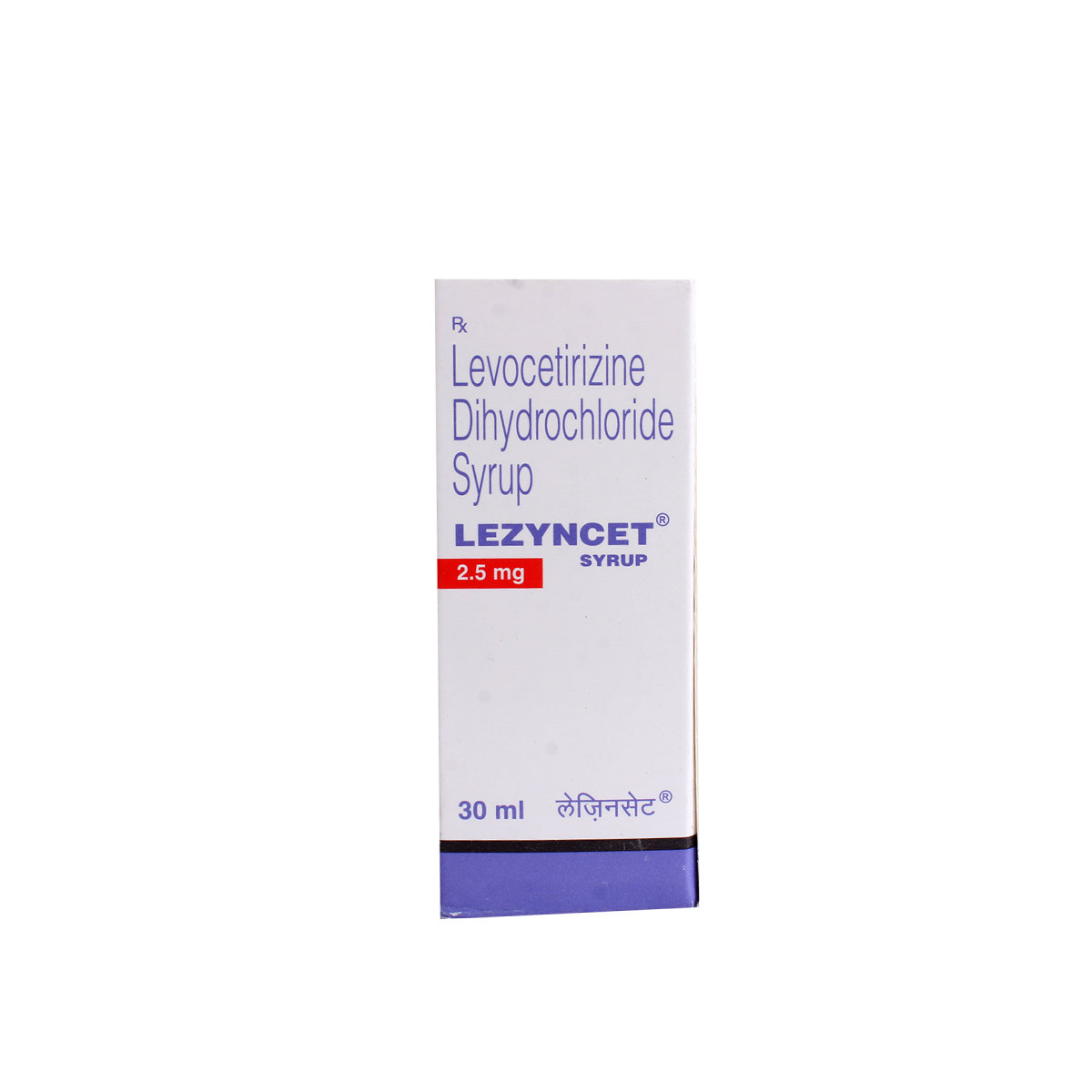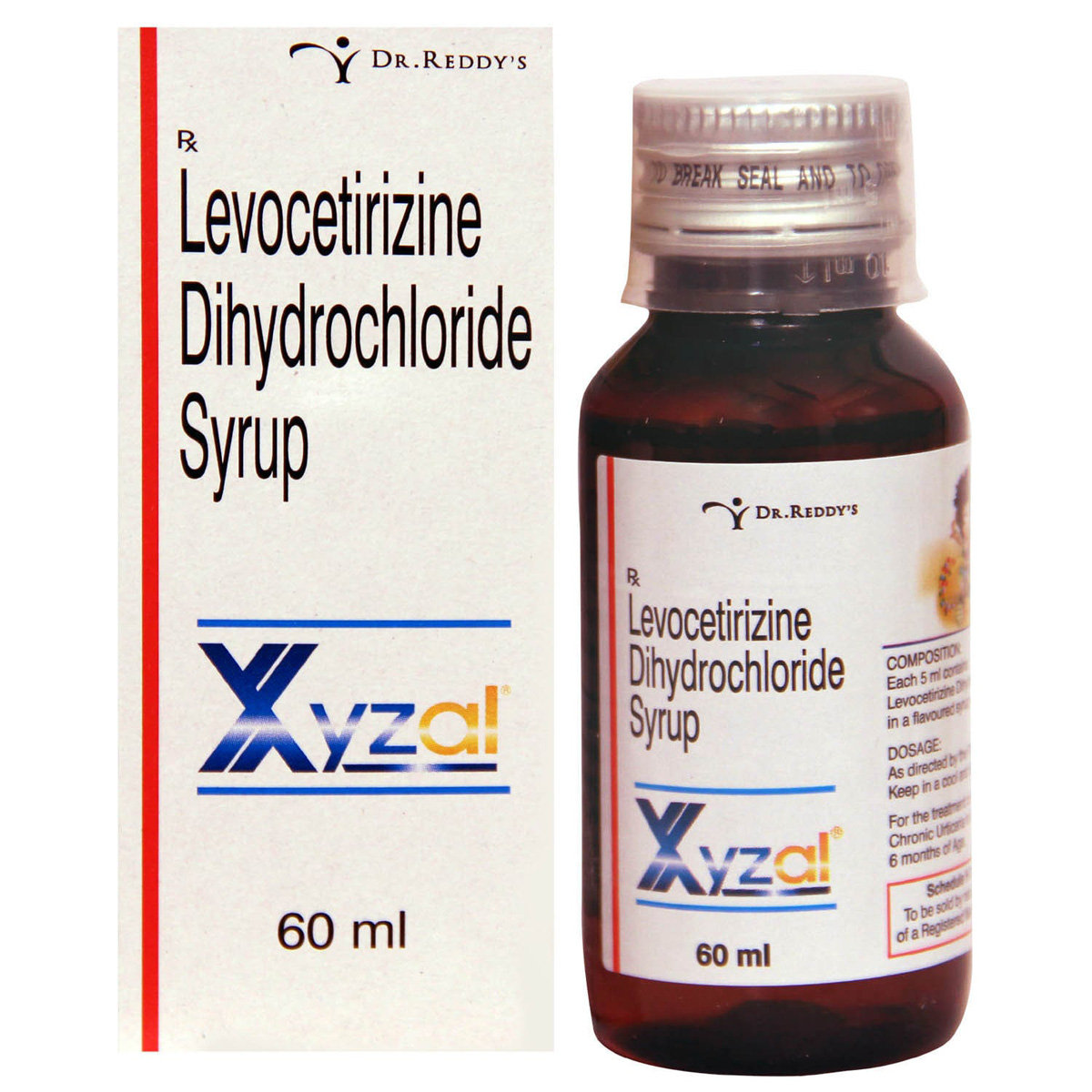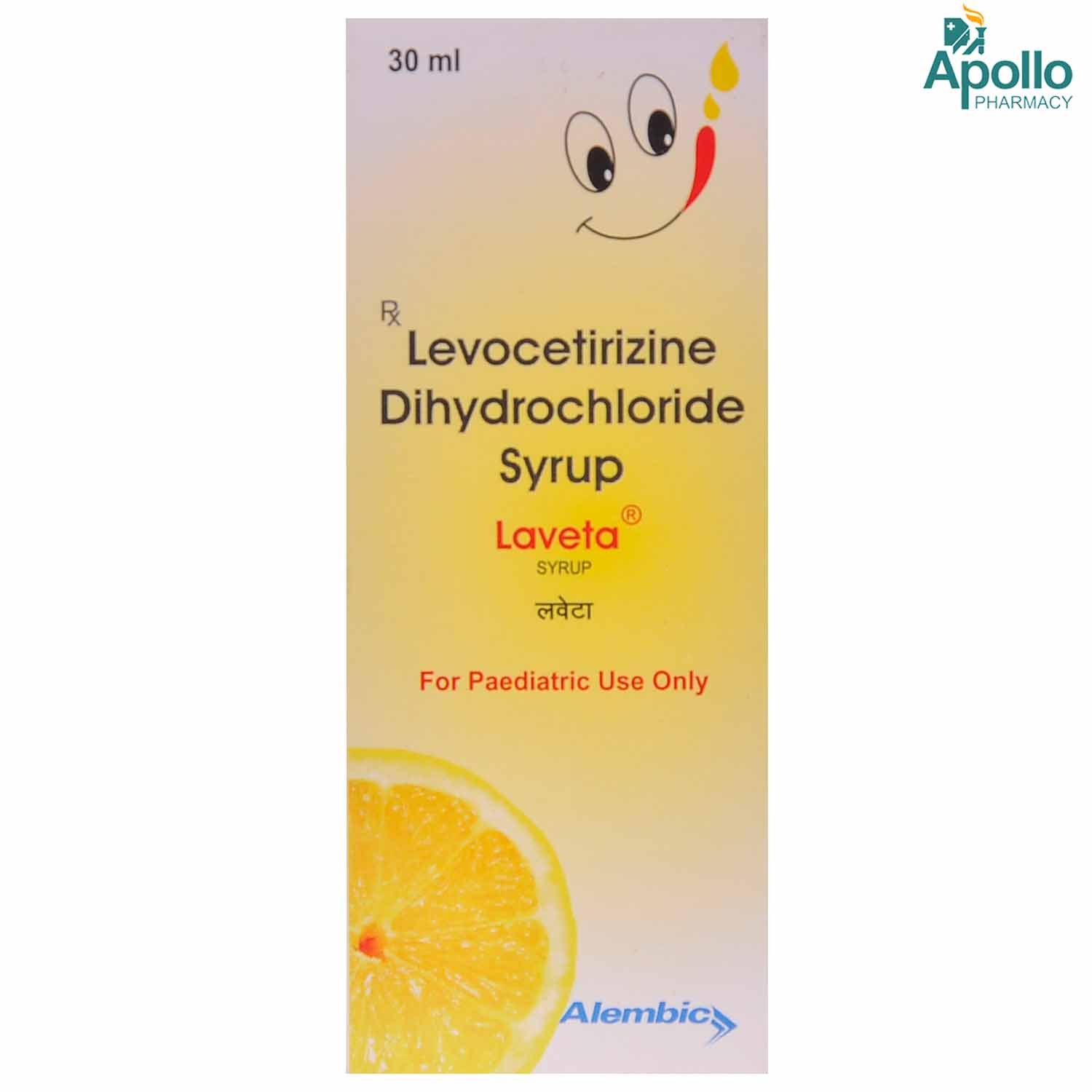L-Hist 2.5 mg Paed Syrup 60 ml
MRP ₹74.5
(Inclusive of all Taxes)
₹11.2 Cashback (15%)
Provide Delivery Location
Online payment accepted
 Prescription drug
Prescription drugWhats That
Composition :
Manufacturer/Marketer :
Consume Type :
Expires on or after :
Return Policy :
About L-Hist 2.5 mg Paed Syrup
L-Hist 2.5 mg Paed Syrup belongs to a class of drugs called antihistamine or anti-allergic. It contains levocetirizine, L-Hist 2.5 mg Paed Syrup is an R-enantiomer of cetirizine primarily used to treat various kinds of allergies. An allergy is an immune system response to foreign elements typically not harmful to your body. These foreign elements are known as 'allergens.' Allergic condition varies from person to person. Some might be allergic to certain foods and seasonal allergies like hay fever. At the same time, others might be allergic to pollen or pet dander.
L-Hist 2.5 mg Paed Syrup contains levocetirizine, a non-drowsy antihistamine. It's less likely to make you feel sleepy than some other antihistamines. However, some people still find it makes them feel quite sleepy, which is used to treat allergies as it blocks the effects of a chemical messenger known as histamine, which is naturally involved in allergic reactions. L-Hist 2.5 mg Paed Syrup is widely used to treat hay fever (an allergy caused by pollen or dust), conjunctivitis (red, itchy eye), eczema (dermatitis), hives (red, raised patches or dots), reactions to insect bites and stings and some food allergies.
You can take L-Hist 2.5 mg Paed Syrup with food or without food. It should be swallowed whole with a glass of water. Do not chew, bite, or break it. Your doctor will advise you on how often you take your tablets based on your medical condition. Sometimes, you may experience headaches, dry mouth, sickness, dizziness, stomach pain and diarrhoea. Most of these side effects of L-Hist 2.5 mg Paed Syrup do not require medical attention and gradually resolve over time. However, if the side effects are persistent, reach out to your doctor. levocetirizine
You should not take the L-Hist 2.5 mg Paed Syrup if you are allergic to levocetirizine or have severe kidney failure (creatinine clearance less than 10 ml/min), urinary retention problem, and fructose intolerance. Do not give this medicine to children younger than two years of age. Check with your doctor if you are taking midodrine to treat low blood pressure and ritonavir for HIV infection. Let your doctor know if you are a pregnant woman or a nursing mother before taking L-Hist 2.5 mg Paed Syrup; your doctor will decide whether L-Hist 2.5 mg Paed Syrup can be taken by breastfeeding mothers or not.
Uses of L-Hist 2.5 mg Paed Syrup
Directions for Use
Key Benefits
L-Hist 2.5 mg Paed Syrup is used to treat allergies as it blocks the effects of a chemical messenger known as ‘histamine,’ which is naturally involved in allergic reactions. L-Hist 2.5 mg Paed Syrup is used to treat adults and children (aged two years and above) who have hay fever (seasonal allergic rhinitis), round-the-year dust or pet allergies (perennial allergic rhinitis), and urticaria (swelling, redness, and itchiness of the skin). In short, it helps to relieve the discomfort and unpleasant symptoms that occur due to allergic conditions, like blocked/runny/itchy nose, red/watery eyes, and skin rashes.
Storage
- Avoid driving or operating machinery or activities that require high focus until you know how the medication affects you.
- Maintain a fixed sleeping schedule, create a relaxing bedtime routine and ensure your sleeping space is comfortable to maximize your sleep quality.
- Limit alcohol and caffeine as these may worsen drowsiness and disturb sleep patterns.
- Drink plenty of water as it helps with alertness and keeps you hydrated and for overall well-being.
- Moderate physical activity can improve energy levels, but avoid intense workouts right before bedtime.
- Inform your doctor about the common cold symptoms you're experiencing due to medication.
- Your doctor may adjust your treatment plan, which could include changing your medication, adding new medications, or offering advice on managing your symptoms.
- Practice good hygiene, including frequent handwashing, avoiding close contact with others, and avoiding sharing utensils or personal items.
- Drink plenty of fluids, such as warm water or soup, to help thin out mucus.
- Get plenty of rest and engage in stress-reducing activities to help your body recover. If your symptoms don't subside or worsen, consult your doctor for further guidance.
- Rest well; get enough sleep.
- Eat a balanced diet and drink enough water.
- Manage stress with yoga and meditation.
- Limit alcohol and caffeine.
- Physical activities like walking or jogging might help boost energy and make you feel less tired.
- Inform your doctor about dry mouth symptoms. They may adjust your medication regimen or prescribe additional medications to manage symptoms.
- Drink plenty of water throughout the day to help keep your mouth moist and alleviate dry mouth symptoms.
- Chew sugar-free gum or candies to increase saliva production and keep your mouth moisturized.
- Use saliva substitutes, such as mouthwashes or sprays, only if your doctor advises them to help moisturize your mouth and alleviate dry mouth symptoms.
- Avoid consuming smoking, alcohol, spicy or acidic foods, and other irritants that may aggravate dry mouth symptoms.
- Schedule regular dental check-ups to keep track of your oral health and handle any dry mouth issues as they arise.
- Inform your doctor immediately if you experience a fever after starting a new medication.
- Your doctor may adjust your medication regimen or dosage as needed to minimize fever symptoms.
- Monitor your body temperature to monitor fever progression.
- Drink plenty of fluids, such as water or electrolyte-rich beverages, to help your body regulate temperature.
- Get plenty of rest and engage in relaxation techniques, such as deep breathing or meditation, to help manage fever symptoms.
- Under the guidance of your doctor, consider taking medication, such as acetaminophen or ibuprofen, to help reduce fever.
- If your fever is extremely high (over 103°F), or if you experience severe symptoms such as confusion, seizures, or difficulty breathing, seek immediate medical attention.
- Tell your doctor about the cough symptoms you're experiencing, which may be triggered by your medication.
- Your doctor may adjust your treatment plan by changing your medication, adding new medications, or providing guidance on managing your cough symptoms.
- Practice good hygiene, including frequent handwashing, avoiding close contact with others, and avoiding sharing utensils or personal items.
- Stay hydrated by drinking plenty of fluids, such as water, tea, or soup, to help thin out mucus and soothe your throat.
- Get plenty of rest and engage in stress-reducing activities to help your body recover. If your cough persists or worsens, consult your doctor for further guidance.
Drug Warnings
Tell your doctor if you are pregnant, plan to become pregnant, or are breastfeeding. If you become pregnant while taking L-Hist 2.5 mg Paed Syrup, consult your doctor. If you have kidney problems, dose adjustment might be required; the doctor will do it depending upon your disease's condition. Please inform your doctor if you have a problem passing urine and have epilepsy (fits) before starting L-Hist 2.5 mg Paed Syrup. If you are supposed to undergo skin testing, the doctor might advise you to stop taking L-Hist 2.5 mg Paed Syrup 72 hours before the test as it decreases response to skin prick test. Patients should be cautioned against getting engaged in work which requires too much mental alertness, like operating machinery or driving a motor vehicle after intake of L-Hist 2.5 mg Paed Syrup. Concurrent use of L-Hist 2.5 mg Paed Syrup with alcohol or other antidepressants should be avoided as it can reduce your mental alertness. L-Hist 2.5 mg Paed Syrup can also be taken under medical supervision by children aged 1 year and older. Patients should avoid taking overdosage of L-Hist 2.5 mg Paed Syrup because of the increased risk of sleepiness and drowsiness at higher doses.
Drug-Drug Interactions
Drug-Drug Interactions
Login/Sign Up
Using esketamine together with L-Hist 2.5 mg Paediatric Syrup 60 ml may increase side effects (drowsiness, confusion, difficulty concentrating, and impairment in thinking, judgment, reaction speed, and motor coordination).
How to manage the interaction:
Taking L-Hist 2.5 mg Paediatric Syrup 60 ml with Esketamine together can result in an interaction, but it can be taken if a doctor has advised it. Do not discontinue any medications without consulting a doctor.
Drug-Food Interactions
Drug-Food Interactions
Login/Sign Up
Diet & Lifestyle Advise
- Staying hydrated is vital for those with a cough or cold. Drinking liquids at room temperature can alleviate cough, runny nose, and sneezing.
- The immune system is affected by stress and raises the risk of being sick. An individual can exercise regularly, meditate, do deep breathing, and try progressive muscle relaxation techniques to relieve stress.
- To stay fit and safe, try to sleep at least 8 hours each night.
- It is advised to avoid contact with known allergens (allergy-causing agents) such as pollen, dust, etc. Certain food items are known to cause allergies to you.
- Maintain personal hygiene and keep your surroundings clean.
Side Effects of L-Hist 2.5 mg Paed Syrup
- Headaches
- Dry mouth
- Feeling sick
- Tiredness
- Dizziness
- Abdominal pain
Habit Forming
Therapeutic Class
All Substitutes & Brand Comparisons
RX
1 AL 2.5 Syrup 60 ml
FDC Ltd
₹90.5
(₹1.33/ 1ml)
18% COSTLIERRX
Allercet L Syrup 60 ml
Micro Labs Ltd
₹89
(₹1.34/ 1ml)
19% COSTLIERRX
Levocet 2.5 mg Syrup 60 ml
Hetero Drugs Ltd
₹94.5
(₹1.42/ 1ml)
26% COSTLIER
Author Details
We provide you with authentic, trustworthy and relevant information
Drug-Diseases Interactions
Drug-Diseases Interactions
Login/Sign Up
FAQs
Drug-Drug Interactions Checker List
- DIPHENHYDRAMINE
- DULOXETINE
- PREGABALIN
- ALPRAZOLAM
- MIDODRINE
- RITONAVIR
Disease/Condition Glossary
An allergy is an immune system response to foreign elements typically not harmful to your body. These foreign elements are known as ‘allergens.’ Allergic condition varies from person to person. Some might be allergic to certain foods and seasonal allergies like hay fever. At the same time, others might be allergic to pollen or pet dander. L-Hist 2.5 mg Paed Syrup is a non-drowsy antihistamine which makes it less likely to make you feel sleepy compared to other antihistamines or antiallergics.
Hay fever: Hay fever/allergic rhinitis is an allergic reaction to pollen, typically when it comes into contact with the mouth, nose, eyes and throat. Hay fever symptoms include sneezing and coughing, a runny or blocked nose, itchy, red or watery eyes, itchy throat, mouth, nose and ears, loss of smell, pain around the temples and forehead, headache, earache and feeling tired.
Eczema: Eczema is a condition in which skin patches become inflamed, itchy, cracked and rough. Some eczema types can also lead to blisters (a small bubble on the skin filled with serum) and are caused by friction, burning, or other damage.
Conjunctivitis: Conjunctivitis is an eye condition caused by infection or allergies. It is also known as red or pink eye.

Have a query?
Alcohol
Safe if prescribed
L-Hist 2.5 mg Paed Syrup may cause excessive dizziness when taken with alcohol so, together intake should be avoided.
Pregnancy
Consult your doctor
L-Hist 2.5 mg Paed Syrup is pregnancy category B medicine so it can be used by the pregnant mother only if your doctor has prescribed it.
Breast Feeding
Consult your doctor
L-Hist 2.5 mg Paed Syrup is known to pass on in a limited quantity via breast milk to the child. L-Hist 2.5 mg Paed Syrup should not be taken until prescribed. Your doctor will weigh the benefits and any potential risks before prescribing it to you. Please consult your doctor.
Driving
Safe if prescribed
Please drive with caution; L-Hist 2.5 mg Paed Syrup usually does not causes blurry vision, but it may affect driving ability in some.
Liver
Consult your doctor
Limited information was available for the use of L-Hist 2.5 mg Paed Syrup in patients suffering from liver impairment. Please consult your doctor if you have any concerns regarding using L-Hist 2.5 mg Paed Syrup in patients with liver impairment. Your doctor will prescribe only if the benefits outweigh the risks.
Kidney
Consult your doctor
L-Hist 2.5 mg Paed Syrup to be taken with caution, especially if you have a history of kidney disease. The dose may have to be adjusted by your doctor. Patients with end-stage renal disease (ESRD) with less than 10 mL/min creatinine clearance or patients undergoing hemodialysis should not take L-Hist 2.5 mg Paed Syrup.
Children
Safe if prescribed
Generally, L-Hist 2.5 mg Paed Syrup is not recommended for children below 6 years with or without a doctor's consent. In case it has to be given, then the dose has to be adjusted and recommended by a child specialist only.










